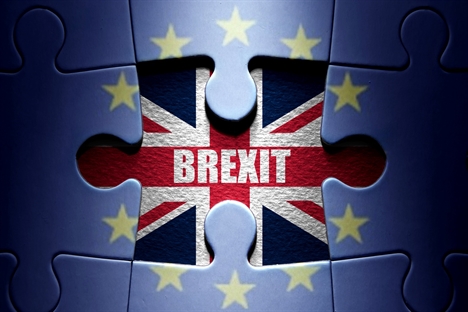26.08.16
Working collectively is key to delivering optimum post-Brexit outcome
Source: PSE Aug/Sep 16
Anand Menon, professor of European Politics and Foreign Affairs at King’s College London, reflects on the task ahead for the public sector after the nation’s vote to leave the European Union.
Public servants have faced numerous challenges over the years, from stringent budget cuts implying the need for fewer people to carry out the same number of tasks, to the complexities of privatisation, to the planning and management of large-scale infrastructure and investment projects. Few, however, have been as intense as that posed by the vote to leave the European Union.
Civil servants in Whitehall face a tumultuous few years. First, there will be the work involved in setting up and staffing two new ministries – the Department for Exiting the European Union and the Department for International Trade. A division of responsibilities will need to be worked out between the two ministers and the foreign secretary and between their civil servants.
Maintaining co-ordination
The Whitehall co-ordination machinery that ensured all departmental interests were taken into account during EU negotiations was routinely hailed as the best in Europe during our membership of the EU. Care must be taken to ensure it continues to function effectively as we leave.
Then there is the question of staff and expertise. Much has been made of the absence of sufficient numbers of trade negotiators to carry out the talks that Brexit will necessitate. And this is not merely a question of a single deal with the EU, but rather, will require, as Charles Grant from the Centre for European Reform has pointed out, multiple sets of overlapping talks. First, to secure exit from the EU. Second, to agree a Free Trade Agreement (FTA) with the EU. Third, to put in place an interim deal to cover the period between the end of membership and entry into force of the FTA. Fourth, to accede to full membership of the World Trade Organisation. Fifth, to replace the FTAs the EU has signed with 53 other countries. Finally, sort our foreign defence and security policy co-operation.
The government’s stated intention of drawing on an international talent pool of trade negotiators – many of whom enjoy lucrative work in major law firms – will not be easy and will certainly not be cheap. Yet it represents only a fraction of what needs to be done in terms of investment in the Civil Service. A report by the House of Common Foreign Affairs Committee on the implications of Brexit for EU foreign policy recommended that, in the event of a vote to leave, the budget of the Foreign and Commonwealth Office should be doubled or even trebled. Choices will have to be made, and something will have to give.

Brexit implications beyond Whitehall
And these are merely the problems confronting Whitehall. The implications of Brexit go far beyond the capital. For one thing, there are the devolved governments whose opinions Theresa May has promised to take account of in the negotiations to come. This will be complicated enough, given, to take but one example, the contradictory stances of Scottish and British governments when it comes to the right of free movement in Europe. It will be all the more so if, as sometimes discussed, the negotiations include attempts to craft different arrangements for the different nations, which might necessitate some creative thinking about internal customs arrangements.
The implications of Brexit will, of course, be felt far beyond the developed administrations. It is at the local level that the loss of income from the EU budget will be most keenly felt. Consequently, it is important that representatives of local government have a say in the various negotiation processes. Some creative thinking will need to be done about how best to involve not only the various tiers of government but also other key stakeholders such as universities, businesses and rural interests in any Brexit process.
Local government must engage electorate
And then there is perhaps the trickiest problem of all; what we might call the ‘non-stakeholder society’ who participated fully in the referendum. People who do not usually bother to turn out for general elections (why would they in safe Labour seats, where their votes hardly matter?) came out for Brexit.
In the north east, Gateshead saw the Leave campaign winning with almost 59% of the vote on the basis of a 70.6% turnout (as compared to 59% in the general election). In nearby Hartlepool, Leave managed to gain 70% of the vote on a 73% turnout (as compared to 61% in the 2015 general election).
Some way needs to be found of involving these people in the search for an optimal outcome. Here, the role of local government will again be critical. The referendum marked a remarkable political mobilisation on the part of people who do not usually participate at all. This needs to be built upon.
In short, accurately reflecting the outcome of a nationwide plebiscite will require more than meetings of the usual suspects around a Whitehall table. The referendum on EU membership taught us many things, not least that ours is a country profoundly divided along not only political but also geographical and class lines. Our public servants, at all levels of government and across all parts of the country, must play their part to ensure that the outcome is one which reflects as far as possible the wishes of this divided kingdom.
Tell us what you think – have your say below or email [email protected]